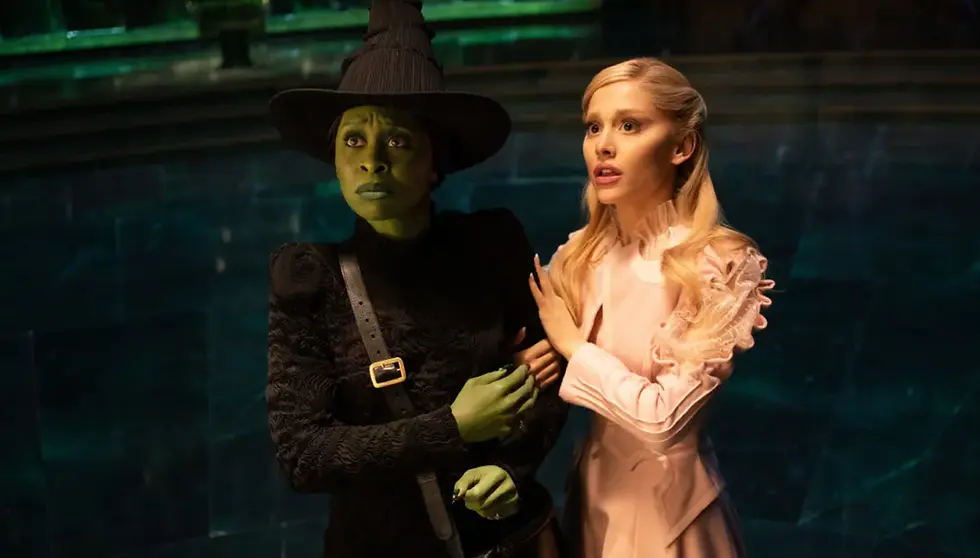Small Things Like These (2024 film)
- comaweng
- Nov 4, 2024
- 3 min read

It’s a bloody slow burner, this movie, and if it were something I were watching at home, I’d almost certainly not have bothered sticking with it past the first few scenes: yet another shot of Bill Furlong (Cillian Murphy) making yet another delivery of coal to one of his customers. Set in 1980s Ireland, Bill and his family are in a semi-rural area – a town large enough to have amenities (on Christmas Eve, Furlong does that blokey bloke thing of doing his entire Christmas shopping, getting his hair cut and having a drink in a bar, all in a single afternoon and evening) but small enough where more or less everyone knows more or less everyone else’s business. Children are instantly recognised as the offspring of so-and-so. Bill rarely has to introduce himself. You get the idea.
The Catholic Church is not exactly portrayed in a positive light, though in this film there is no sensationalism or, as far as I could deduce, anti-religious bias or sentiment. Sarah Redmond (Zara Devlin) is discovered outside a Magdalene Asylum, in an outbuilding used to store coal. She had been locked in there, according to her own testimony before the mother superior (Emily Watson) by other girls – that is, other inmates. It would appear she was probably actually bunged in there by the nuns running the asylum. Girls and women were in the asylum for all sorts of reasons – some were orphans, or otherwise given up by their families in the way that pets are given up by their owners and turned over to an animal sanctuary. Except animal sanctuaries care for and look after their residents with love and compassion. The Catholic Church in Ireland did not. It has never apologised, let alone contributed to the compensation schemes set up by the Irish Government, for the abuse meted out, as this film would have it, of a physical and psychological nature.
Women and girls retained in Magdalene Asylums, or Magdalene Laundries as they were more commonly known, included prostitutes but also mothers who had borne a child out of wedlock. Some, of course, were both, by way of financial necessity, before they were sent, sometimes dragged against their will, to the laundries, and put to work for no pay. This, then, is a bleak watch, despite the Christmas setting. Bill Furlong himself was a bastard child, as it were – his mother’s Protestant employer (if I understood what was going on properly), a Mrs Wilson (Michelle Fairley), kept her on, so the adult Bill was quite unaware of what was ‘really’ going on in the Magdalene Laundries, until he inadvertently ended up seeing irrefutable evidence for himself.
The mother superior is civilised enough, which is more than can be said for the other nuns, who speak harshly to, well, everyone, including Bill. One of the sisters even effectively tells him to fuck off, saying she will make arrangements for future coal deliveries with someone else with immediate effect. She appears to have been overruled by the mother superior, who in a later scene pays Bill in cash, back in the days when people were paid cash in hand. And, goodness me, she had more than enough banknotes stashed away in her office drawer.
Still, with the Church being the main source of school education for the townspeople, the long and the short of it is, as the mother superior subtly points out, Bill’s own daughters (he has five) who haven’t started what would now be deemed secondary school education may not be able to do so at the town’s school. There is apparently competition for places, and it’s the Church’s school, so the Church can decide who is admitted and who isn’t. So Bill, having been made aware of what really goes on in the Magdalene Laundry next door, had better keep his mouth shut. There’s even a bribe, guised as a Christmas gift to Bill’s wife Eileen (a stoic Eileen Walsh).
Well, he keeps his mouth shut, but sometimes actions speak louder than words. The film ends abruptly without telling us if the mother superior carries out her threat with regards to Bill’s younger children not being allowed to attend school (the cynic in me suggests she does). The act of kindness undertaken, however, is morally the right thing to have done. It’s no wonder some people hate the Church quite passionately.
Four stars




Comments